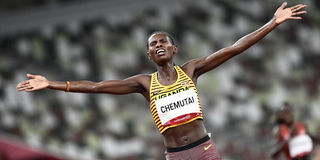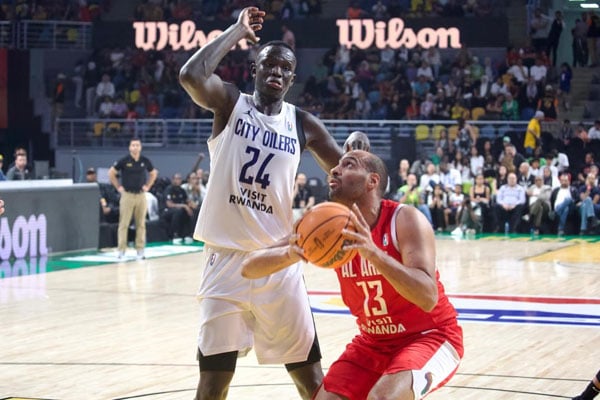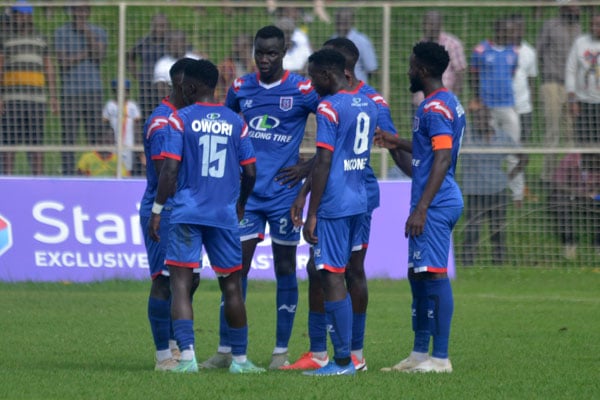Chemutai: The school dropout who rose to Olympic glory

Peruth Chemutai
What you need to know:
For someone who only finished seventh at the Rio Olympics five years ago and then fifth at the 2019 World Championships in Doha, that she could be so confident to win Uganda a gold medal is a record to envy. But such is the character many a woman dreaming of breaking the glass ceiling have had to exude.
Put aside the gold medal and remove steeplechase from the Ugandan Olympic equation that is now Peruth Chemutai. To the eyes, you will be left with her infectious smile. Speak to her and she will say “I am happy.”
And girl, is she happy! She could have been named Ngarakwak (happiness) if the Sabiny child naming was ‘scattered.’
In the wake of her exploits at the Tokyo 2020 Games in Japan, where she became the first Ugandan ‘Full Woman’ in Olympic speak, unsolicited advice flooded in, including one that urged her to avoid men.
But driving away from Kololo Airstrip on Wednesday afternoon in a brand new Pajero Sport gifted by the State, Chemutai, in the co-driver’s seat, was probably humming, “Chepto nyo Ngarakaat Chemutai ngat” -- Chemutai is a very happy girl.
Collin Chebet, the boyfriend of the 22-year-old from Kapchorwa, was behind the wheels. “I do not know how to drive but I will learn soon,” said Chemutai, who oozes gracefulness even in the water jump race.
When you watch her hop effortlessly over the barriers, you would not help but appreciate her choice of a heroine in the sport: Almaz Ayana. The Ethiopian long-distance runner was graceful on track and ran as if she did not have a sweat to break.
But the infectious smile and constant “I am happy” are just on the face of the coin in her life. On the tail of it, those who have interacted with her and followed her life closely, say she is one tough specimen whose ‘no’ resonates decisively. “She’s known to be a decision maker,” says Darren Allen Kyeyune, Daily Monitor’s sports journalist.
A principled woman
“She has a ‘no’ in her way of life. This, to fellow colleagues, coaches or even a manager.” The decisiveness was first manifested when Chemutai had just clocked teenage life. In 2013, she took to full-time athletics after attending the district athletics championships in Bukwo.
“Running looked really good. I felt like trying it. I discovered that I could compete with some of the athletes who had made running a profession, so I decided to take it up,” Chemutai told New Vision five years ago.
Then there was the conscious decision to drop out of school in Senior One to focus on chasing her dreams on foot rather than use the brain and hands in the classroom.
Breaking barriers
Chemutai’s exploits on August 4 inside the Tokyo National Stadium broke so many barriers beyond the ones on the track she was up against. Of the 16 women who lined up for the 3,000m steeplechase final on August 4, she was probably the only one who had never sat behind the four wheels of a vehicle.
But she is now probably picking bits, like the difference between a brake pedal and a running spike, from inside the blue sports vehicle. Sophie Chebet will no longer have to sit home and wait for the results of her daughter’s performance because she has no television set.
Moses Isaya, too, will not have to trek to Kiriki Trading Centre in Kween District to crane his neck among droves of men to catch a glimpse of his daughter on TV.
And Chemutai’s siblings will probably not have to drop out of school even if to pursue the same career as herself now that school fees burden will seem a distant relative.
Her early years
Chemutai was born to Isaya and Sophie Chebet in Tulel sub-county, Bukwo District, on the dawn of July 10, 1999. Mutai means dawn in Kupsabiny, with the prefix ‘Che’ completing the name that means one born before dawn.
The second born of 12 children in a polygamous family of two mothers, probably first learnt to hop over a hoe handle as a toddler like many children do, except that hers was not a joy-hop but an induction into the peasantry life that she would have to inherit from her father, now 48.
Chemutai attended Chemuron Primary School before joining Tulel Secondary School, from where she decided that it was easier to trust her feet to deliver her to her dream destination than to study Geography about how many more new districts had been carved inside the Sebei sub-region.
Chemutai was recruited into the Uganda Police Force in 2015 under the administration of Gen Kale Kayihura, who gave a lot of attention to sports. She has been a Special Police Constable (SPC) deployed in the sports department of the Force.
Speaking to Daily Monitor’s Kyeyune from Kololo on Wednesday, Chemutai said she immersed herself into athletics in 2011. By 2013, she was ready to try her legs in the Bukwo District Championship.
“I attempted a couple of steeplechase races and can confess that the event is among the most challenging on the track,” said Sande Bashaija, a former athlete who also covered the sport extensively as a journalist, a day before the historic final in Tokyo.
“But this girl makes a meal of the challenge. I have not seen a Ugandan, male or female, who eases past the barriers as effortlessly as Chemutai.”
Talent identified when she was a toddler
When Isaya claimed that he noticed his daughter’s talent when she was just two years old, there is little to suggest an exaggeration. Here is a girl who had only given the sport her full focus in 2011 yet by 2015, she was competing on the international front.
Chemutai’s first taste of a medal was at the Commonwealth Youth Games in Apia, Samoa, with silver in the 1,500m and 3,000m water jump events.
Six years later, the 43-kg runner was as confident in her ability as her constant smile was to her face that she would bring home the gold.
“My target is to run my best and come back with the gold medal. I know I will bring it (gold). I will be happy if I carry the flag of Uganda and the anthem is sung,” she said a month before the Games.
For someone who only finished seventh at the Rio Olympics five years ago and then fifth at the 2019 World Championships in Doha, that she could be so confident was a mark to envy. But such is the character many a woman dreaming of breaking the glass ceiling have had to exude.
The thing is, talent without confidence wins no medals at the big stage. And there is no bigger stage than the Olympics. This is where nerves fail even the best athletes.
Chemutai’s pre-Games confidence was not false bravado to pundits even before she had outpaced a chasing Hyvin Kiyeng, caught up with and left American Courtney Frerichs in her wake to win the gold.
Hoe was a blessing
“The mastery she exhibited in clearing the barriers makes for some interesting entertainment,” Bashaija noted before the final. “The water jump barrier presents the toughest test in this seven-and-a half lap race. Most steeplechasers step onto the hurdle in order to get an elevation to jump over the water.
“Chemutai is flawless. She will fly over the water barrier and land at the dry end without even stepping on the hurdle for elevation. That’s how impressively she has mastered the art of steeplechase running.”
While a hoe is a blessing, a steeplechaser from a humble background who is looking beyond the farming implement would probably imagine jumping over it instead of those hurdles during the race. For Chemutai, that art came naturally, but finding her destiny had to come from deep within her consciousness.
Chemutai credits her victory to her parents and admits she will have to learn how to manage fame and what it means to be a champion. She also acknowledges that she will seek mentorship from her seniors Stephen Kiprotich and Joshua Cheptegei.
Cost of fame
Chemutai credits her victory to her parents and admits she will have to learn how to manage fame and what it means to be a champion. She also acknowledges that she will seek mentorship from her seniors, Stephen Kiprotich and Joshua Cheptegei.
As she learns to move on four wheels, she must be aware that the burden of fame will weigh heavier than picking up the hoe to till the shamba of beans and cassava every morning. And no, it’s more than just buying a TV set and having that house the State promised for her family.
At the far end, she has to sustain that talent beyond what the only woman to bag a medal before her -- Dorcus Inzikuru -- did. That strong will she uses to say no to anything she disagrees with is what she will need to tackle life’s burdens.





